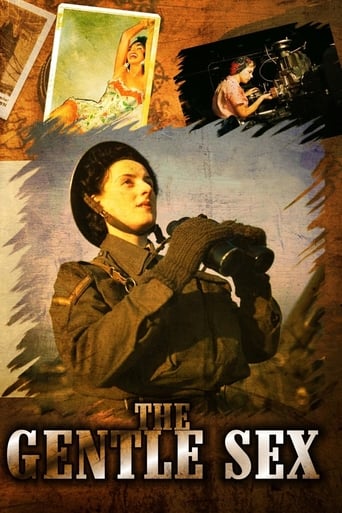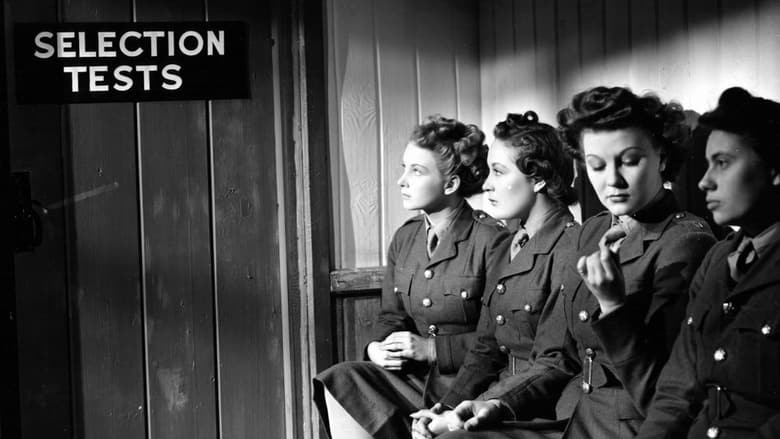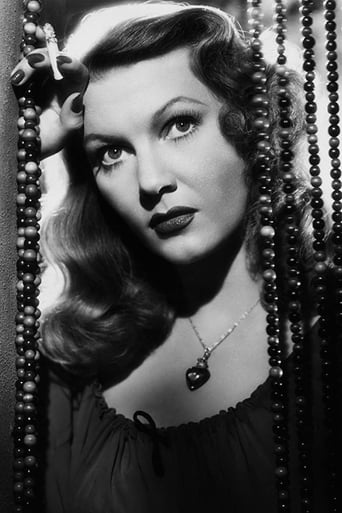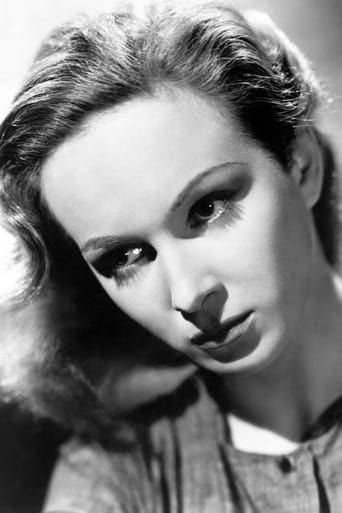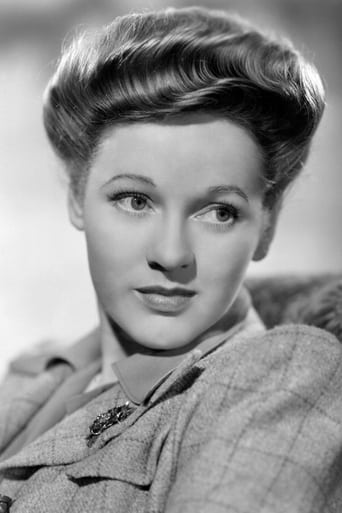The Gentle Sex (1943)
During the War seven women from very different backgrounds find themselves together in the Auxiliary Territorial Services. They are soon drilling, driving lorries, and manning ack-ack batteries.
Watch Trailer
Cast


Reviews
Terrible acting, screenplay and direction.
Better Late Then Never
It's funny watching the elements come together in this complicated scam. On one hand, the set-up isn't quite as complex as it seems, but there's an easy sense of fun in every exchange.
This film is so real. It treats its characters with so much care and sensitivity.
Seven attractive women join the ATS (Auxiliary Territorial Service) in Great Britain during World War II. This was a volunteer branch of the British Army, for female participants, like the United States Women's Army Corps (WACs). The "lead" is (arguably) platinum blonde Joyce Howard (as Anne Lawrence), but they are all essentially supporting roles. The women come from different locations and classes. They get to know each other during training (better than we get to know them). All have moments and/or potential, but it's all for naught...You're likely to recognize the director in the opening sequence is actor Leslie Howard. He keeps his back to the camera while narrating, but still shows a bit of cheek. Later on, Howard's back for another cameo. Presumably "omniscient", Mr. Howard doesn't add much to the story, though his presence helps make the film seem more cohesive. In reality, "The Gentle Sex" is weak on storytelling and character development. Rumored to have been doing more work for the Allies than making movies, Howard died when his plane was shot down by Nazis in June 1943. A tragic loss.***** The Gentle Sex (4/15/43) Leslie Howard ~ Joyce Howard, Lilli Palmer, Rosamund John, Joan Greenwood
Previous reviewers have commented on lack of character development and lack of action. While there is some truth in both assertions, I think we do have to look at the essential purpose of the film, which is to show seven very different young women (though these ones do tend to be above average in looks) being turned into soldiers.An army in wartime is a great mincing machine, taking individuals from all walks of life in at one end and turning them out at the other as soldiers. By definition, they are then no longer individuals but a member of a team that has been trained to achieve objectives jointly. The common experience of first training together and then learning to do the jobs they are assigned means that not only do the young women in the film mature fast as people but also they cohere as soldiers. Loyalty to their mates and their unit overrides personal needs, with their own strengths and weaknesses evened out in the common effort. For example, Barbara Waring has no particular feelings about the Germans, seeing them merely as efficient, but Erna Debruski (who is probably meant to be not French but Czech) has seen their lethal efficiency at work in her country and is driven by violent hatred.Of the tasks soldiers have to do, some are everyday and boring while others are unique and exciting. We see two young men doing very dangerous work, one a fighter pilot and one a commando, but our seven girls end up driving lorries and manning anti-aircraft guns. Even so, they are all put to the test. The lorry girls have to drive through the night to get their trucks aboard a ship sailing to the front, possibly North Africa, and then have to rush fresh ammunition to the anti- aircraft battery during a raid. There the AA girls bring an attacking bomber down in flames. From the seven young strangers who shared a railway compartment at the start to the trained and dedicated women who are doing demanding, even hazardous, jobs to protect their country, surely there has been huge character development and surely there has been action?PS As for that music hall sketch, should we judge it by professional standards? Isn't it meant to be an amateur, who has volunteered to amuse her chums?
This film should be watched with an understanding of its intentions, which was to bolster morale and pay tribute to the ordinary British women serving in the ATS, as well as encourage recruitment. There were many propaganda films made around this time, some better than others, but they all had a huge impact on helping the war effort. These were not career soldiers, remember. They'd been called up from offices, shops and factories from all over Britain and did a fantastic job. Practically every British family had at least one female member serving in the ATS during the second world war. We're reminded over and over again, that these women were doing the kind of work normally reserved for men and more important were valued for it! Every so often, a bystander will remark on how hard they work. The film lost no opportunity to remind a tired and increasingly demoralised British public what the war was about and why it was important not to give in.
I imagine this film was originally made as a tool to inform the contemporary public of what war work for those women who enlisted would actually consist; as it happens, to the modern descendants of those largely-forgotten ATS volunteers, it performs the same service.The answer, apparently, is that they underwent quasi-military training in order to fit them to take over auxiliary roles performed in pace-time by men, thus releasing more soldiers for actual combat: they served as mechanics and drivers, tea-orderlies and telephonists, and, in a rare show of belligerence, assisted as anti-aircraft gunners. I must confess to never being quite clear how the drilling and marching fitted into all this, save to inculcate a general sense of military identity!'The Gentle Sex' is basically a documentary about these women's lives and training, and there is very little plot as such. There is one dance and a couple of romances, a marathon drive in which no-one falls asleep at the wheel and no-one is left behind, and a bombing raid in which none of the characters are hurt. The women are drawn from a cross-section of types: bossy Joan and gentle Scots Maggie, the pampered baby and the damaged refugee, the sharp shop-girl and the officer's daughter.Perhaps the most striking moment is when the latter, Anne, goes off into an artificial-sounding speech about how her generation are the first in history to be truly liberated and serve alongside men that had my hackles rising instinctively with its too-obvious message... and then she is quietly deflated by her fiancé's mother mentioning how she herself met her husband after she was wounded while on service at the front in the previous war, and still has the piece of shrapnel to show for it! It's just as much propaganda as the other, of course, but it's an astute acknowledgement and subversion of the film's own potentially preachy effect.The only reason I initially sat down to watch this picture was because of its curiosity status as 'Leslie Howard's last film', although his on-screen appearance is limited to supplying the voice of the sceptical but finally won-over 'mere male observer' who provides the linking commentary. I can't honestly recommend it as a gripping thriller, and it comes to emotional life only in a couple of places: but it remains what it was made to be, an informative and somewhat idealised glimpse into women's military contribution to the Second World War, in a branch of the service often eclipsed by the WRNS and the WAAF. I am reminded -- in a not uncomplimentary comparison -- of the well-presented British Transport Films documentaries.Worth seeing, but don't expect too much.

